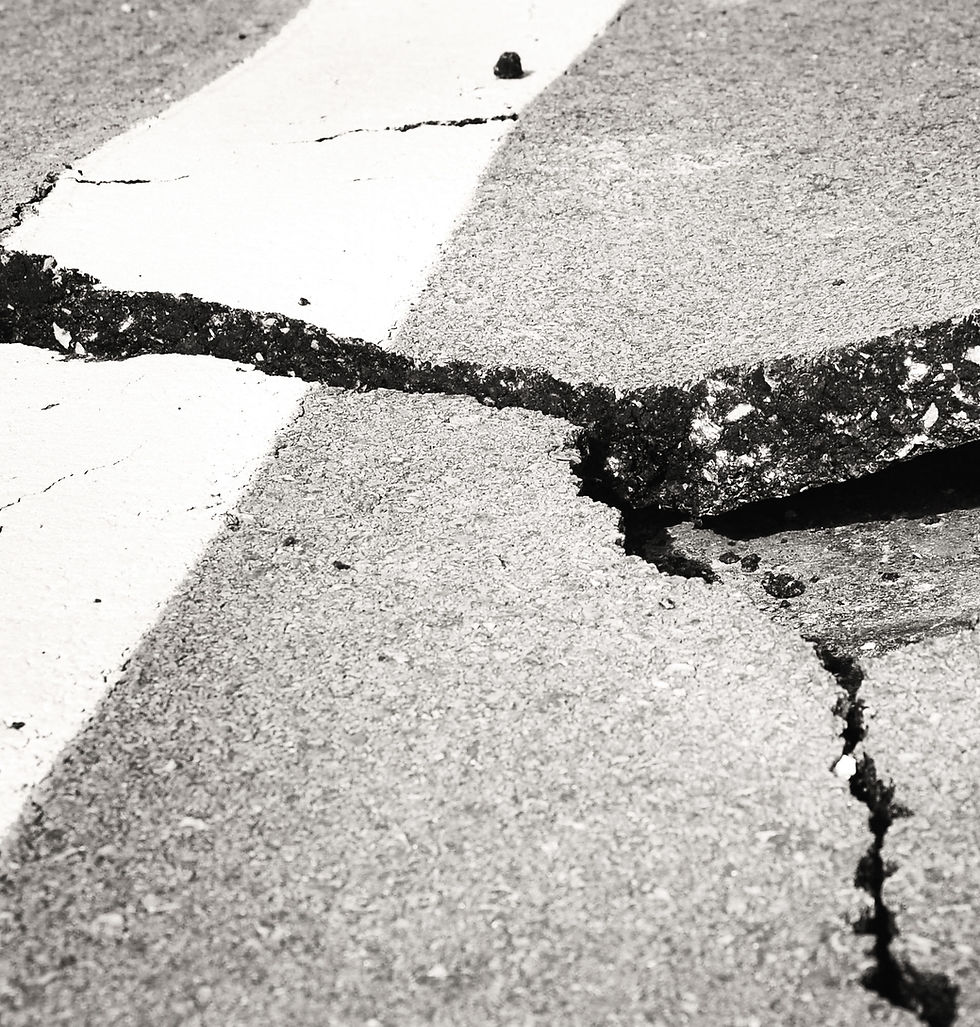Corrosive Effects of Rock Salts on Vehicles and Infrastructure
- jtanu071
- Mar 22, 2018
- 2 min read
Author: Stuart Tait, Construction Site Manager
Rock salt deicers increase corrosion of vehicles and roadway structures such as bridges and railings (1). Using ethylene glycol will result in additional long-term cost savings, due to a longer life cycle of the current COO (City of Ottawa) road infrastructure. The motor vehicles travelling on COO roads have a wide array of metals in them, e.g., steel, cast irons, aluminum alloys, magnesium alloys, and copper and copper alloys, all of which are subject to the corrosive effects of chloride-based de-icers (2). Chloride-based products may also lead to corrosion of critical vehicular parts such as: brake linings, frames, and bumpers. A 1985–1990 field study in Sweden revealed that compared with those exposed to NaCl salted roads, the cars driven on unsalted roads had 50% less incidence of cosmetic corrosion and the carbon steel test panels had more than 90% reduction in corrosion rate (3). In addition, the corrosive damage of chloride-based deicers to the transportation infrastructure (steel bridges, large span supported structures, parking garages, pavements, etc.) has enormous safety and economic implications (4) An example of rock salt’s corrosiveness comes in the form of Montreal’s Champlain Bridge, which suffered significant deterioration of the concrete and steel which comprised the bridge (5) Chloride-based deicers can exacerbate the scaling problem of freeze-thaw damage to concrete. In cold-climate regions such as Ottawa, the synergy of freeze-thaw cycles and rebar corrosion may lead to problems against reinforced concrete structures, with serious economic and safety implications (4).

References
1) Fay, L., Shi, X., 2012. Environmental impacts of chemicals for snow and ice control: state of the knowledge. Water, Air, and Soil Pollution 223, 2751–2770.
2) Xianming Shi (2012). Use of chloride-based ice control products for sustainable winter maintenance: A balanced perspective. Cold Regions Science and Technology 86 (2013) 104–112
3) Rendahl, N., Hedlund, S., 1992. The influence of road deicing salts on motor vehicle corrosion. In: Baboian, R. (Ed.), Proc. CORROSION/91 Symposium “Automotive Corrosion and Protection. NACE International, Houston, TX.
4) Xianming Shi, David Veneziano, Ning Xie, Jing GongX., Fay, L., Yang, Z., Nguyen, T. A., & Liu, Y. (2009). Corrosion of deicers to metals in transportation infrastructure: introduction and recent developments. Corrosion Reviews, 27(1–2), 23–52.
5) Montpetit, J. (2011, October 05). Feds announce plan to replace Montreal's Champlain Bridge within 10 years. Retrieved March 15, 2018, from https://globalnews.ca/news/162719/feds-announce-plan-to-replace-montreals-champlain-bridge-within-10-years/




This was a very interesting post as it highlighted the very specific yet very realistic consequences of rock salt, i really enjoyed reading this. As a Construction Site Manager, would you prefer to see ethylene glycol used as a specific replacement for rock salt or would using both substances in combination work as well?